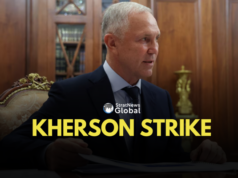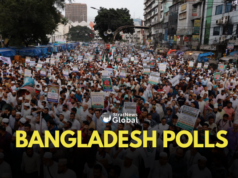What can we expect from the upcoming July 4 elections in the UK, sparked by Prime Minister Rishi Sunak’s sudden decision to call snap polls earlier this month? What prompted Sunak’s move? What will a Labour victory, as is being widely predicted, mean not just for the UK and Europe, but also for India?
Domestically, will Labour leader Keir Starmer be able to stem the rot in the National Health Services, once billed as one of the best in the world, but creaking under the weight of political and economic problems? Will he be able to stem the growing economic and social problems plaguing the country?
Will the Free Trade Agreement between India and the UK, talks on which were launched in January 2022, finally see the light of day under the new government? What happens to Sunak’s controversial immigration policies, including the plan to transfer illegal refugees to Rwanda? Will the growing restrictions on foreign students seeking education in the UK continue?
These were some of the questions we asked Ambassador Yash Sinha, who served as India’s high commissioner to the UK till October 2018. He’s also served as India’s High commissioner to Sri Lanka, ambassador to Venezuela, and Consul General in Dubai before that. After he retired from the Indian Foreign Service, he was appointed Chief Information Commissioner, a post he held till October 2023.
According to Ambassador Sinha, Sunak was the “fall guy as far as the Conservatives are concerned, because in the 14 years that they’ve been in power, he’s been the 5th Prime Minister, and that doesn’t inspire confidence among the voters.”
During their term, there were several issues which plagued Indo-UK relations, including the activities of separatist Khalistani extremists in the UK. Is that likely to change? “I’m not sure if things are going to change for the better,” said Ambassador Sinha. “However, as far as immigration goes, we must understand that the UK does face a problem,” he added. This is not limited to the UK alone, with anti-immigration sentiments growing across much of Europe.”
Then there’s Labour leaders who are known to have a sympathetic position towards Pakistan, as well as the party’s strong positions on issues like human rights and freedom of expression. How will those impact Indo-UK relations?
To find the answer to that question and a lot of other fascinating insights on what to expect post the elections in both India and the UK, watch the full interview.
In a career spanning three decades and counting, Ramananda (Ram to his friends) has been the foreign editor of The Telegraph, Outlook Magazine and the New Indian Express. He helped set up rediff.com’s editorial operations in San Jose and New York, helmed sify.com, and was the founder editor of India.com.
His work has featured in national and international publications like the Al Jazeera Centre for Studies, Global Times and Ashahi Shimbun. But his one constant over all these years, he says, has been the attempt to understand rising India’s place in the world.
He can rustle up a mean salad, his oil-less pepper chicken is to die for, and all it takes is some beer and rhythm and blues to rock his soul.
Talk to him about foreign and strategic affairs, media, South Asia, China, and of course India.




